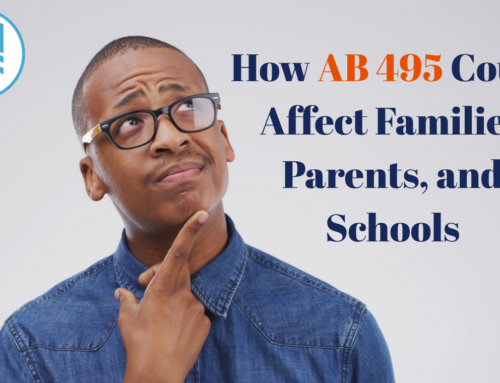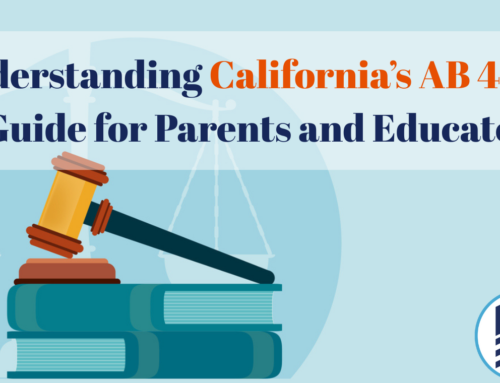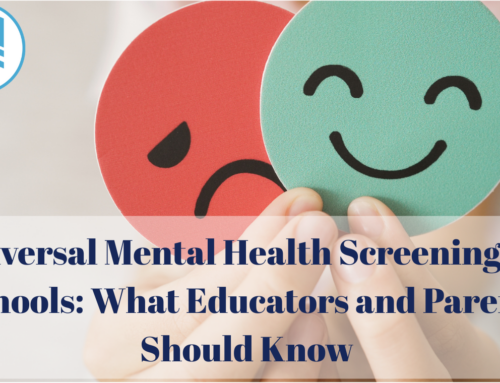
On Monday, U.S. Attorney General Merrick Garland said he will bring in the FBI to address the “increase in harassment, intimidation and threats of violence against school board members, teachers and workers in our nation’s public schools.”
Along with the FBI, Attorney General Garland will meet with other state attorney generals and various levels of federal, state, and local law enforcement to come up with strategies to combat the “disturbing trend.” You can read Attorney General Garland’s full memorandum here or see below.

The Justice Department will create a task force that will work to “discourage these threats, identify them when they occur, and prosecute them when appropriate.” Additionally, school board members and other school staff will receive training from the Justice Department that will help them identify threats, how to properly report them, and how to get evidence.
What specifically prompted the response from the Justice Department? The National School Boards Association wrote a letter to President Biden that suggested the behavior of protesters at school board meetings as acts of “domestic terrorism” and “hate crimes.” The letter mentions several times that school board members have reportedly received physical threats. In one instance, a school board member got a letter saying, “You are forcing them to wear mask—for no reason in this world other than control. And for that you will pay dearly.”
This type of threat could coincide with the “threats of violence” mentioned in Attorney General Garland’s memorandum. But there’s a lack of specificity in the wording of the memorandum, and that’s where things can get blurry. For instance, what counts as “harassment”?
Harassing can be defined as “to intimidate or coerce,” even “disturb” or “torment,” but it can also mean “bother persistently” or “pester.” Does that include parents repeatedly asking questions at a school board meeting when members refuse to give a clear answer? Or, could it be any kind of protesting at a school board meeting? The term “harass” could vary from every individual, as every person has different standards of what irritates them.
Are concerned parents and citizens protesting the decisions of school boards and administrators really domestic terrorists? Who are the real subjects of concern, elected and appointed officials, or our children and grandchildren?
But how can we express our concerns about school matters? Attorney General Garland actually sums it up here: “While spirited debate about policy matters is protected under our Constitution, that protection does not extend to threats of violence or efforts to intimidate individuals based on their views.”
And that’s precisely the right that Americans have. We can (and must) hold our government accountable—which includes the school board—but in no way do we have the right to be violent. This right of accountability is protected in the First Amendment: “Congress shall make no law respecting an establishment of religion, or prohibiting the free exercise thereof; or abridging the freedom of speech, or of the press; or the right of the people peaceably to assemble, and to petition the Government for a redress of grievances.”
So, what’s the takeaway here? Well, parents can and should continue to voice concerns at school board meetings. Whether elected or appointed, these school board members are meant to represent the views of the community, so citizens reserve the right to speak up when those members are no longer doing that. Again, that right is preserved by the First Amendment.
It boils down to this: our children are being brought up in these schools, so parents need to take an active role in their education. We care enormously about what’s being taught to our children, and we will do anything to protect them, even if it’s from school policy. But we must remember to be civil about it. Even if we don’t mean to be threatening, and we’re just trying to desperately make our case heard, we must be respectful. In doing so, we may be able to accomplish even more than what we set out to do.
It remains to be seen whether the Attorney General intends to crack down on actual threats of harm only or if his extreme measures are meant to discourage everyday parents from speaking up. What do you think? Does the federal government have a place in addressing local school disagreements? Are concerned citizens really domestic terrorists?
Thinking your school board could use a change? Learn how you can directly impact school policy.





[…] National School Boards Association (NSBA). The apology was in response to an initial letter that likened school board protesters to domestic terrorists. That first letter pleaded with the Biden Administration to properly take care of the threats from […]
[…] than that, you should get involved in your child’s school, despite attempts that have been made to discourage parents from attending school board meetings. While it’s important to remember to […]
[…] in October, the National School Boards Association (NSBA) likened upset parents at school board meetings to domestic terrorists. The NSBA has since apologized, but that was after the Department of Justice formed a task force to […]
[…] what they’re learning, and how the district functions. Attending school board meetings allows your voice to be heard and provides the board itself with a compass for community […]
[…] was in October of 2021 that U.S. Attorney General Merrick Garland wrote a memorandum to call in the FBI to address the “increase in harassment, intimidation and threats of violence […]
[…] clashes between school boards and parents have been getting a lot of national news coverage over the last couple of years, school boards simply aren’t one of the highlighted governing […]
[…] at school board meetings. The National School Board Association likened him and other parents to domestic terrorists, prompting the Biden administration to track parents for threats against school board […]
[…] Read more: Are School Board Protesters Domestic Terrorists? […]
[…] happened with the National School Boards Association (NSBA) and the Biden administration. The NSBA wrote a letter to the administration, likening parents at school board meetings to “domestic terrorists” and demanding action. But […]
[…] was in October of 2021 that U.S. Attorney General Merrick Garland wrote a memorandum to call in the FBI to address the “increase in harassment, intimidation and threats of violence […]
[…] in October, the National School Boards Association (NSBA) likened upset parents at school board meetings to domestic terrorists. The NSBA has since apologized, but that was after the Department of Justice formed a task force to […]